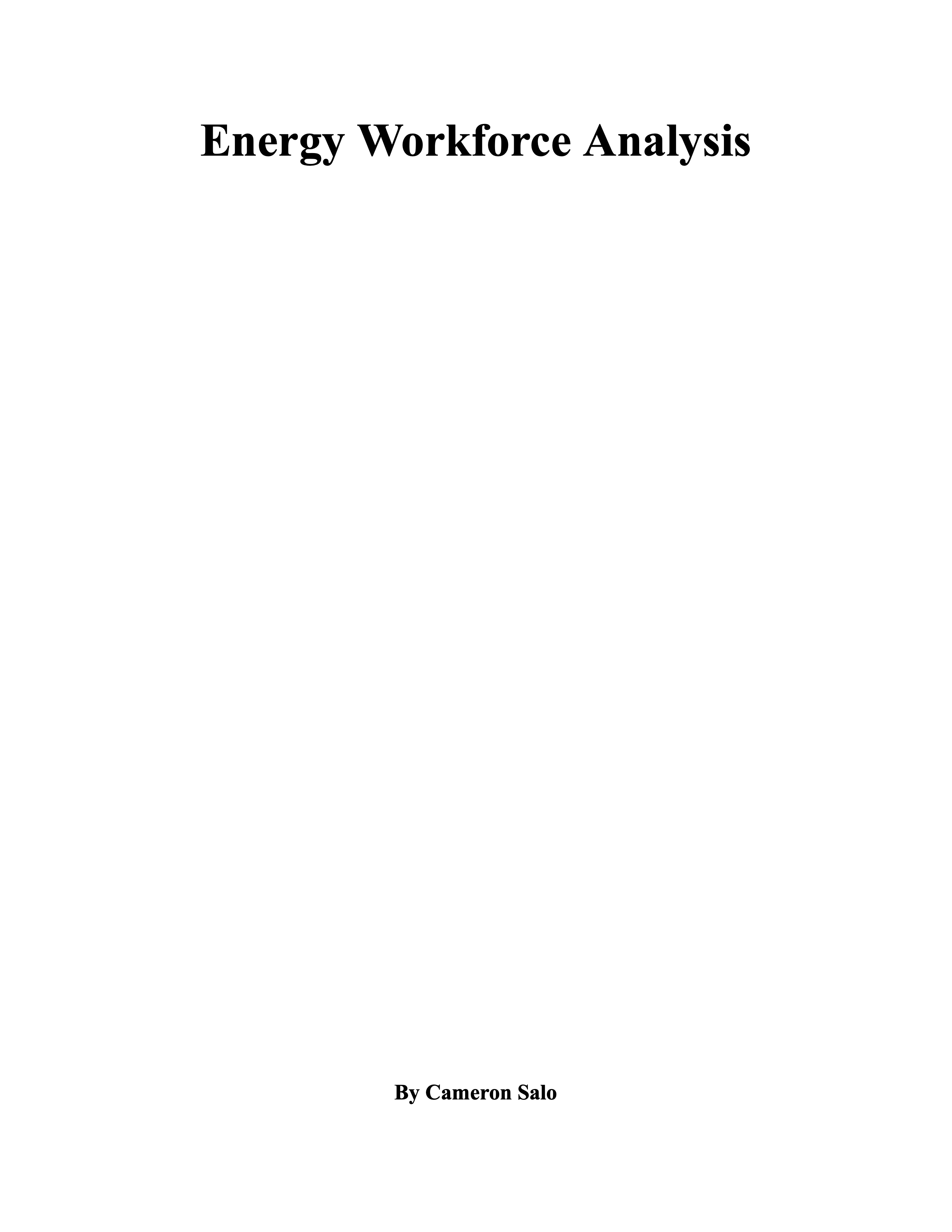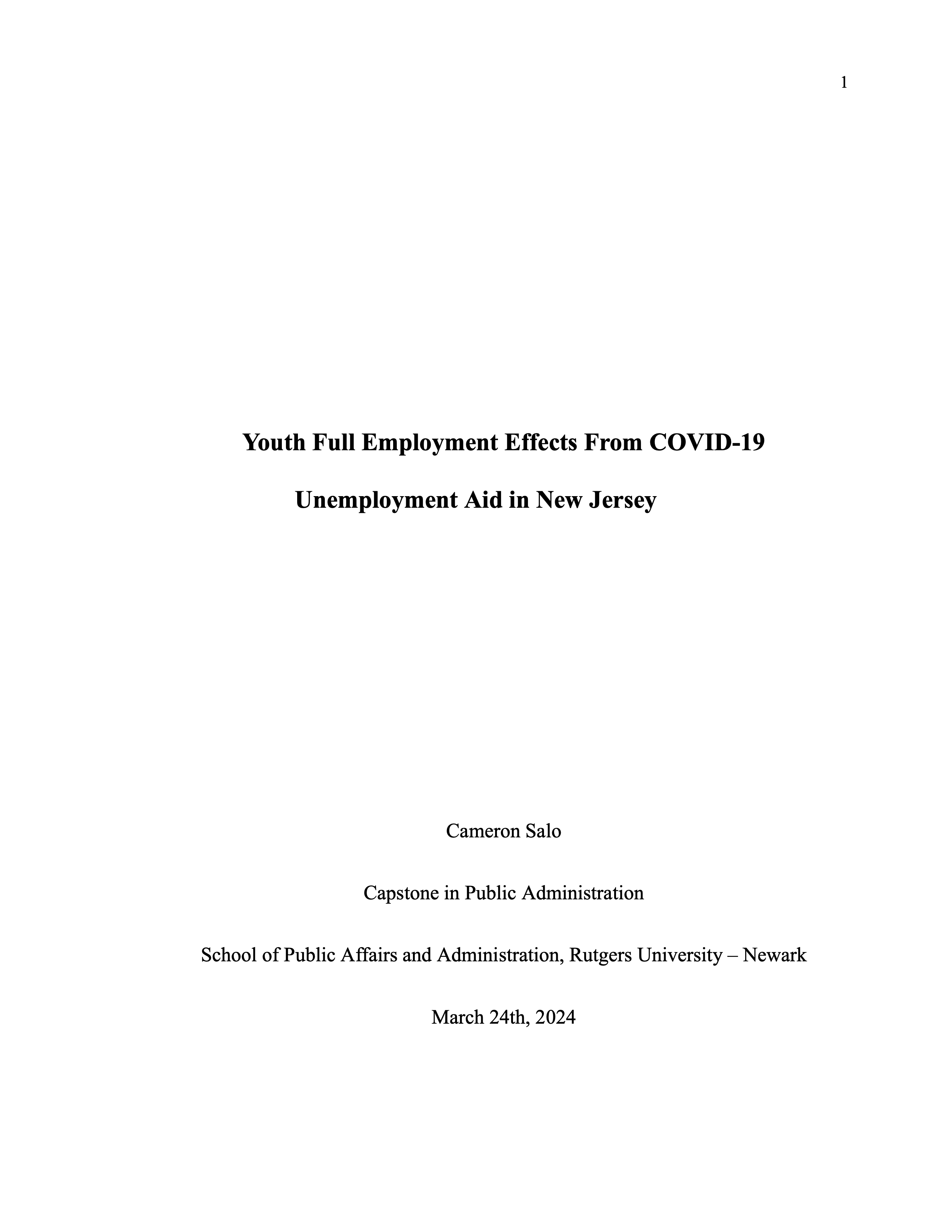Energy Workforce Analysis
The Energy Workforce Analysis explores workforce development strategies in Massachusetts and Rhode Island as they transition to a clean energy economy. It examines the economic impact of renewable energy expansion, grid modernization, and labor policies, highlighting job creation in solar, offshore wind, and energy storage. The report discusses workforce diversity, labor shortages, and equitable job access while showcasing training programs and policy initiatives that support a just transition. Key areas covered include microgrid implementation, Project Labor Agreements (PLAs), and renewable energy infrastructure investments, demonstrating how targeted workforce development sustains long-term economic growth and climate resilience.
View PDF →Youth Full Employment
This document explored the impact of COVID-19 unemployment aid on young adults in New Jersey, focusing on how financial stability fostered career transitions and improved job satisfaction. It utilized survey data to analyze the effects of financial support on negotiating better job terms, transitioning to new careers, and even starting businesses, drawing parallels to models like Sweden's Rehn-Meidner framework. This research examined an underexplored intersection in academia and public policy by shedding light on the nuanced role of financial aid in shaping labor market dynamics and empowering youth employment decisions during a global crisis.
View PDF →Dual Enrollment Options in NYC
This document directly relates to my work at FPWA, where I engaged in policy advocacy to prevent students from falling through the cracks in their transition from high school to CUNY/SUNY institutions. At FPWA, I worked with the Bill & Melinda Gates Foundation to analyze educational access and retention barriers, particularly for students from low-income and marginalized backgrounds. My role involved stakeholder engagement, data analysis, and policy recommendations to help shape initiatives that support equitable access to higher education. The Dual Enrollment programs outlined in this document align with those efforts by offering structured pathways to college success, reinforcing the importance of policies that bridge the gap between high school and higher education.
View PDF →

